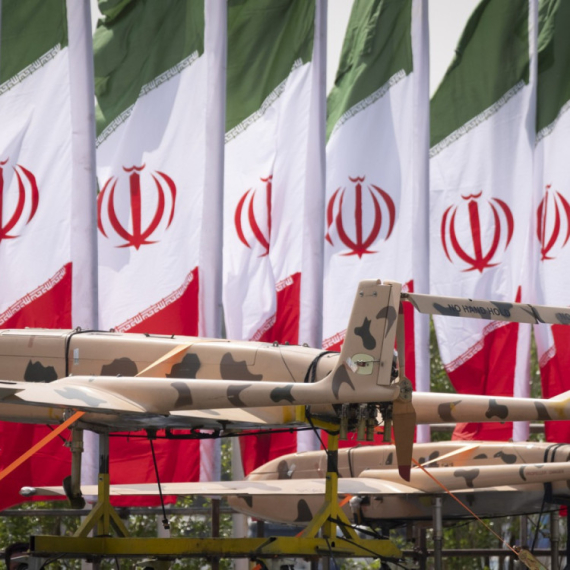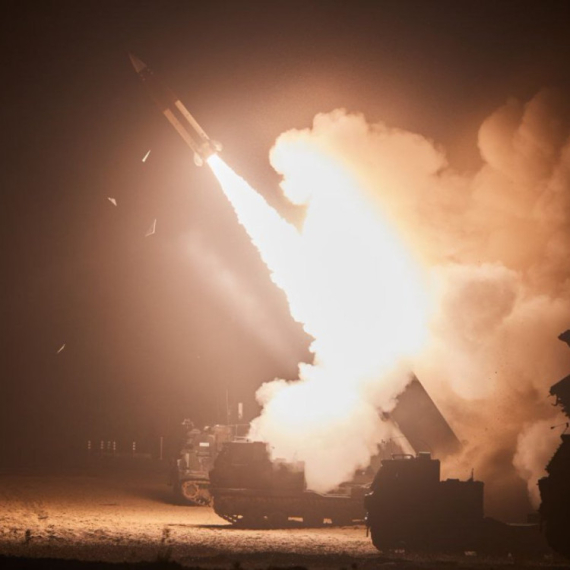Serbia looks to freeze recognitions
President Boris Tadić has sent 55 of his personal emissaries to as many countries, pleading that they do not recognize Kosovo.
Friday, 13.08.2010.
09:50

President Boris Tadic has sent 55 of his personal emissaries to as many countries, pleading that they do not recognize Kosovo. Belgrade daily Vecernje Novosti writes today that this "diplomatic campaign" is already bearing fruit. Serbia looks to freeze recognitions What the newspaper refers to as the "shuttle diplomacy" is directed as those countries that are under great pressure to recognize Kosovo, while Tadic's letter explains Belgrade's position after the ICJ advisory opinion and calls on these states not to change their stance on Kosovo. Although new recognitions were announced for the days after the court's ruling, none have materialized thus far. On July 22, the top UN court said that the Kosovo Albanian unilateral declaration of independence, made in February 2008, and rejected by Serbia as an illegal attempt at secession, did not violate international law, since no provision in it actively prohibited such proclamations. The ICJ did not rule on the right to secession and self-determination. Among the countries that the newspaper says "great powers" are pressuring to recognize Kosovo are EU's Slovakia, Romania, Spain, Greece and Cyprus, Caribbean and Central American countries, some members of the Non-Aligned Movement, and former British and French colonies. The government has not revealed the names of Tadic's emissaries, "for diplomatic reasons". Kosovo has been recognized by 69 out of 192 UN member-states. The territory itself has not been able to join the UN. No change in Bucharest Meanwhile in Bucharest, Romanian Foreign Minister Teodor Baconschi has stated that his country is not being subjected to pressure to recognize the unilaterally declared independence by Kosovo. Romanian will not change its already well known stand after the opinion of the International Court of Justice (ICJ), Baconschi said. “It is a matter of principle. Our friends Serbs are very much aware of Romania's stand. We appreciate the common sense of the Serbian authorities in their official responses after the announcement of the advisory opinion of the ICJ,” said Baconschi in an interview published by Vecernje Novosti on Friday. When asked whether Bucharest is exposed to pressure from abroad to recognize Kosovo, Baconschi said that no pressure is being imposed on Romania, and that the country is only receiving recommendations from the countries that had already recognized Kosovo's independence. But, those recommendations do not have any impact on Romania's stand “because it is an independent state”, the minister said. Baconschi also said that Bucharest is ready, if requested, to facilitate direct dialogue between Belgrade and Pristina easier "since it is clear that the best future for the Balkan region as a whole is within the European Union". "This dialogue should be about the issues of status, European harmonization, good neighborly relations, security of the Serb minority in northern Kosovo," he said. Asked what the common EU position on Kosovo is at this point, Baconschi said that the organization would "attempt to, with realism, build a joint future, with Albanians from Kosovo, and with Serbs."
Serbia looks to freeze recognitions
What the newspaper refers to as the "shuttle diplomacy" is directed as those countries that are under great pressure to recognize Kosovo, while Tadić's letter explains Belgrade's position after the ICJ advisory opinion and calls on these states not to change their stance on Kosovo.Although new recognitions were announced for the days after the court's ruling, none have materialized thus far.
On July 22, the top UN court said that the Kosovo Albanian unilateral declaration of independence, made in February 2008, and rejected by Serbia as an illegal attempt at secession, did not violate international law, since no provision in it actively prohibited such proclamations.
The ICJ did not rule on the right to secession and self-determination.
Among the countries that the newspaper says "great powers" are pressuring to recognize Kosovo are EU's Slovakia, Romania, Spain, Greece and Cyprus, Caribbean and Central American countries, some members of the Non-Aligned Movement, and former British and French colonies.
The government has not revealed the names of Tadić's emissaries, "for diplomatic reasons". Kosovo has been recognized by 69 out of 192 UN member-states.
The territory itself has not been able to join the UN.
No change in Bucharest
Meanwhile in Bucharest, Romanian Foreign Minister Teodor Baconschi has stated that his country is not being subjected to pressure to recognize the unilaterally declared independence by Kosovo.Romanian will not change its already well known stand after the opinion of the International Court of Justice (ICJ), Baconschi said.
“It is a matter of principle. Our friends Serbs are very much aware of Romania's stand. We appreciate the common sense of the Serbian authorities in their official responses after the announcement of the advisory opinion of the ICJ,” said Baconschi in an interview published by Večernje Novosti on Friday.
When asked whether Bucharest is exposed to pressure from abroad to recognize Kosovo, Baconschi said that no pressure is being imposed on Romania, and that the country is only receiving recommendations from the countries that had already recognized Kosovo's independence.
But, those recommendations do not have any impact on Romania's stand “because it is an independent state”, the minister said.
Baconschi also said that Bucharest is ready, if requested, to facilitate direct dialogue between Belgrade and Pristina easier "since it is clear that the best future for the Balkan region as a whole is within the European Union".
"This dialogue should be about the issues of status, European harmonization, good neighborly relations, security of the Serb minority in northern Kosovo," he said.
Asked what the common EU position on Kosovo is at this point, Baconschi said that the organization would "attempt to, with realism, build a joint future, with Albanians from Kosovo, and with Serbs."







































Komentari 34
Pogledaj komentare